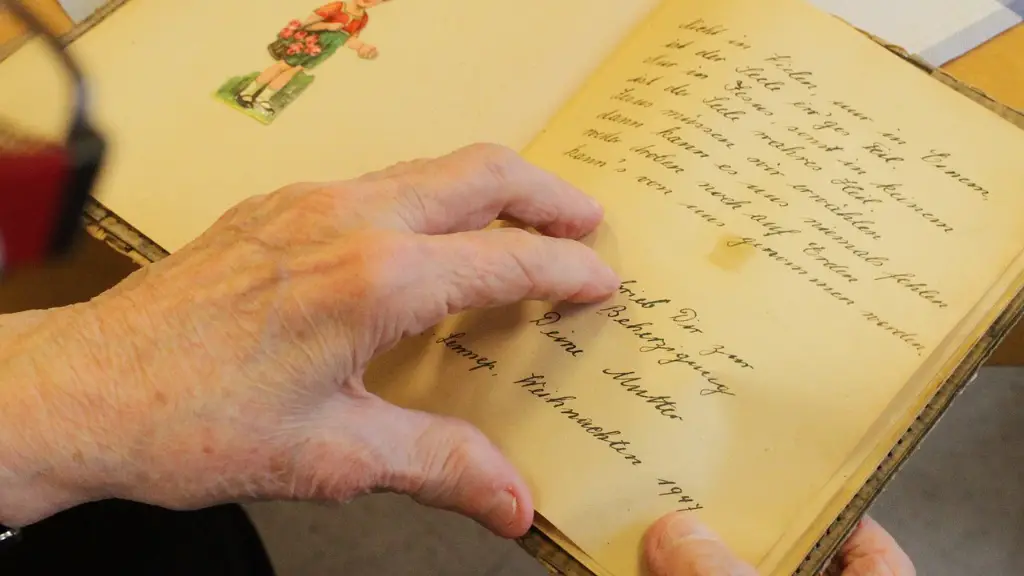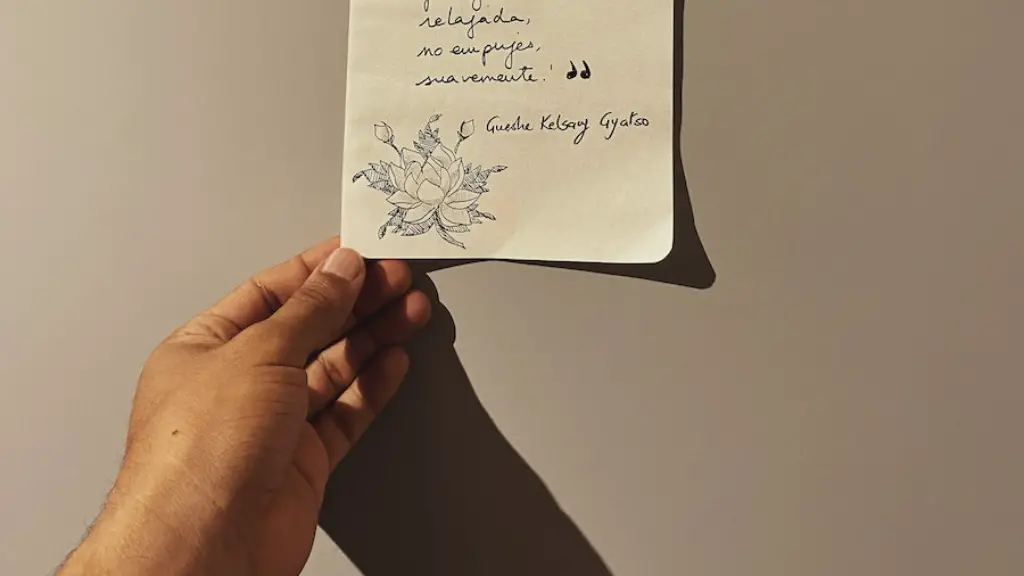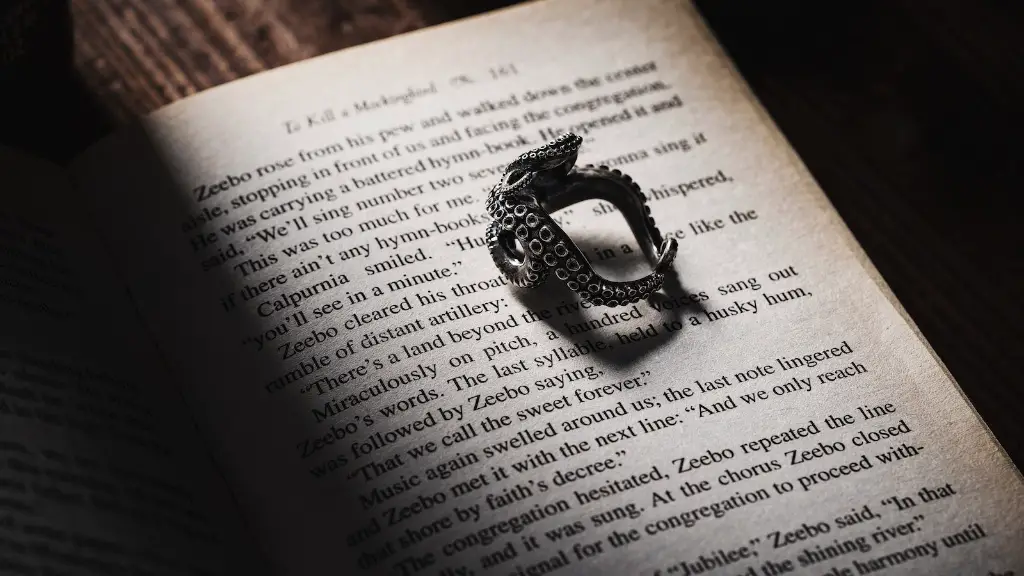The earliest known example of Greek Epic poetry is the epic poetry that existed in the archaic period of ancient Greece, circa the 8th century BC, before the classical period began. During this time, oral poets used the epics to express the values and beliefs of the time, as well as to teach morality, patriotism and tradition. Greek heroic poetry is most famously represented by Homer, the author of the Iliad and the Odyssey, though there were many other poets who wrote at the same time. These poets wrote their epics in the form of songs and stories, known as dactylic hexameter, which served as the main poetic form of the era.
The language used in the epics was an archaic form of Greek known as Mycenaean or Homeric Greek. This was a language strongly influenced by dialects of the Mycenaean civilization and was characterized by a certain musicality due to the use of poetic meters. This language is still studied today, as it is the only surviving form of Greek from that era.
The content of the epics represents the values, customs and beliefs prevalent in ancient Greece. For instance, the Iliad is an epic poem about the Trojan War, in which the gods and goddesses intervene on behalf of their mortal followers. It also deals with themes of loyalty, honor and courage, all of which were important to the ancient Greeks. Similarly, in the Odyssey, Homer uses his characters to explore the nature of homecoming, as well as the importance of hospitality and justice. These themes are still important to us today and still serve as sources of inspiration and guidance.
The earliest known example of Greek Epic Poetry is often attributed to Homer, who is thought to have lived in the 8th century BC. His works, the Iliad and the Odyssey, are the longest of the Greek epics, and they are thought to be the oldest known works of literature. Homer’s works serve as a benchmark for all other Greek epics, as they show the true power and range of Greek Epic Poetry and its ability to explore human experiences, emotions and ideas.
It is thought that Homer was greatly influenced by the oral poets of his time and that he was the one that eventually put the epics into writing. This makes him the earliest known author of the Greek epics and thus the earliest known example of Greek Epic Poetry. Furthermore, Homer’s influence can still be seen in the poetry of today, as his works have served as inspiration for a number of writers, from the Roman poet Virgil to the modern-day writer Seamus Heaney.
Influence of Oral Poets
The tradition of oral poetry played a huge role in Greek Epic Poetry and its evolution. Oral poets were a staple in the culture of the time and were responsible for the verbal transmission of stories, themes and values through their works. These oral poets would take an epic tale and add their own interpretation, changing some details and exploring new angles or stories within the epic. Over time, their works would become the basis of all Greek Epic Poetry.
The stories and characters that were created through the works of these oral poets would go on to become part of Greek culture and mythology. Homer himself was a famous oral poet and was said to have recited his own works at the festivals of the gods. Likewise, Homer was greatly influenced by the works of the oral poets before him, which can be seen in the many parallels between his works and their own.
The influence of oral poets on the evolution of Greek Epic Poetry cannot be overstated. It is through the works of these poets that many of the most popular characters, stories and themes have been passed down through the centuries and have become part of our collective understanding of Greek culture and mythology. Without the works of these poets, much of the richness of the Greek Epic Poetry may never have been realized.
Storytelling Styles
The storytelling style of the earliest examples of Greek Epic Poetry was quite different than the one used today. Poets of the time would focus on expressing the story in the most vivid and powerful way possible, using the language of the day to best explain the themes and values associated with their tales. They would embrace the use of poetic devices such as similes, metaphors and personification, in order for the listener to better connect with the story. In addition to this, the poems would often be enhanced by musical accompaniment and other elements in order to make them more engaging.
Unlike the modern-day style of storytelling, the stories of ancient Greece were rooted in mythical events, gods and goddesses, and surreal settings. This type of story was not just a means of entertainment, but a way of teaching morality and values. By telling tales in this way, the ancient Greeks were able to emphasize their most important teachings and make sure that they were remembered and passed down to future generations.
The use of this style of storytelling is still seen today, in both modern-day works of fiction as well as in certain types of poetry. Epic Poetry is one of the earliest examples of this style and it is still used today. This shows the timelessness and relevance of the ancient style of expressing values, stories and even emotions.
Symbolism and Themes
Ancient Greek Epic Poetry is characterized by its use of symbolism and themes. Symbols were used both to represent a certain character or event, and to show the relationship between those elements and the wider themes of the poem. Symbols of strength, loyalty and courage, for instance, would be used to emphasize the importance of these values, and to show how their choices, even in the face of adversity, would ultimately lead to a successful outcome.
Themes also play an important role in this type of poetry. Authors would often explore the deeper meanings of their stories, exploring human emotions, motivations and experiences. Homer himself was known for exploring the human condition within his works, and his works are still used today to explore the same questions that he did. Through the use of symbolism and themes, the poems of this era were able to convey some of the deepest questions and truths of the human experience.
Tragedy and Comedy
The earliest examples of Greek Epic Poetry also contained elements of tragedy and comedy. Tragedies were used to highlight the darker aspects of life, such as death, betrayal and injustice, whereas comedies were used to celebrate friendship, love and life in general. Both tragedy and comedy were used in order to explore the human experience, and to make sure that important lessons were learned. For instance, the famous figure of Odysseus in the Odyssey is both heroic and flawed, which helps the reader to connect to the story and to learn valuable lessons about perseverance and loyalty.
Tragedy and comedy have been around since the time of the ancient Greeks, and even today we still use them in our works of literature. The Iliad and the Odyssey deal with both tragedy and comedy, presenting life as a series of both triumphs and sorrows. By embracing this duality, the ancient Greeks were able to explore the full range of human experience, from our most heroic and noble moments to our lowest and darkest ones.
Language and Poetic Meter
The language and poetic meter used in the earliest examples of Greek Epic Poetry were incredibly important to its success. In order to truly capture and convey the emotion and importance of the story, the author had to use the right language and meter. Homer himself was a master of this, using the language of the time as well as metrics, feminine endings and alliteration in order to make his works even more effective.
The language of the epics was an archaic form of Greek, known as Mycenaean or Homeric Greek. This was a language strongly influenced by dialects of the Mycenaean civilization, and was characterized by a certain musicality due to the use of poetic meters. This form of language was ideal for transmitting stories and values, as it was easier to understand and remember, making it a great tool for oral poets in communicating their ideas.
The use of poetic meters also played a crucial role in the success of these epics. Poetic meters were used to give the poems a certain musicality, and make them easier to remember and transmit through verbal means. By employing these poetic meters, the authors were able to create an effect that was both powerful and memorable, and one that helped their works become even more effective.
Legacy and Enduring Impact
The legacy and enduring impact of Greek Epic Poetry can still be seen today, as the themes and stories of these works are still relevant and inspiring. Homer’s works, for instance, are still studied and analyzed in schools and universities around the world. The characters and stories that he created have also served as inspiration for writers and filmmakers, from Virgil’s Aeneid to the modern-day classic, The Lord of the Rings.
The values and ideas explored in Homer’s works, as well as other poets of the time, are still relevant today. By exploring themes such as courage, loyalty and justice, they are able to provide guidance and inspiration to modern audiences. Their works are also a testament to the power of storytelling and how it can be used to explore and understand the human experience.
The legacy of Greek Epic Poetry is still very much alive in today’s world. Its themes, values and stories are still used to explore and express the most powerful ideas and emotions of our time. Furthermore, the language and poetic forms used in these works are still studied and enjoyed to this day, showing the timelessness of this ancient art form.





